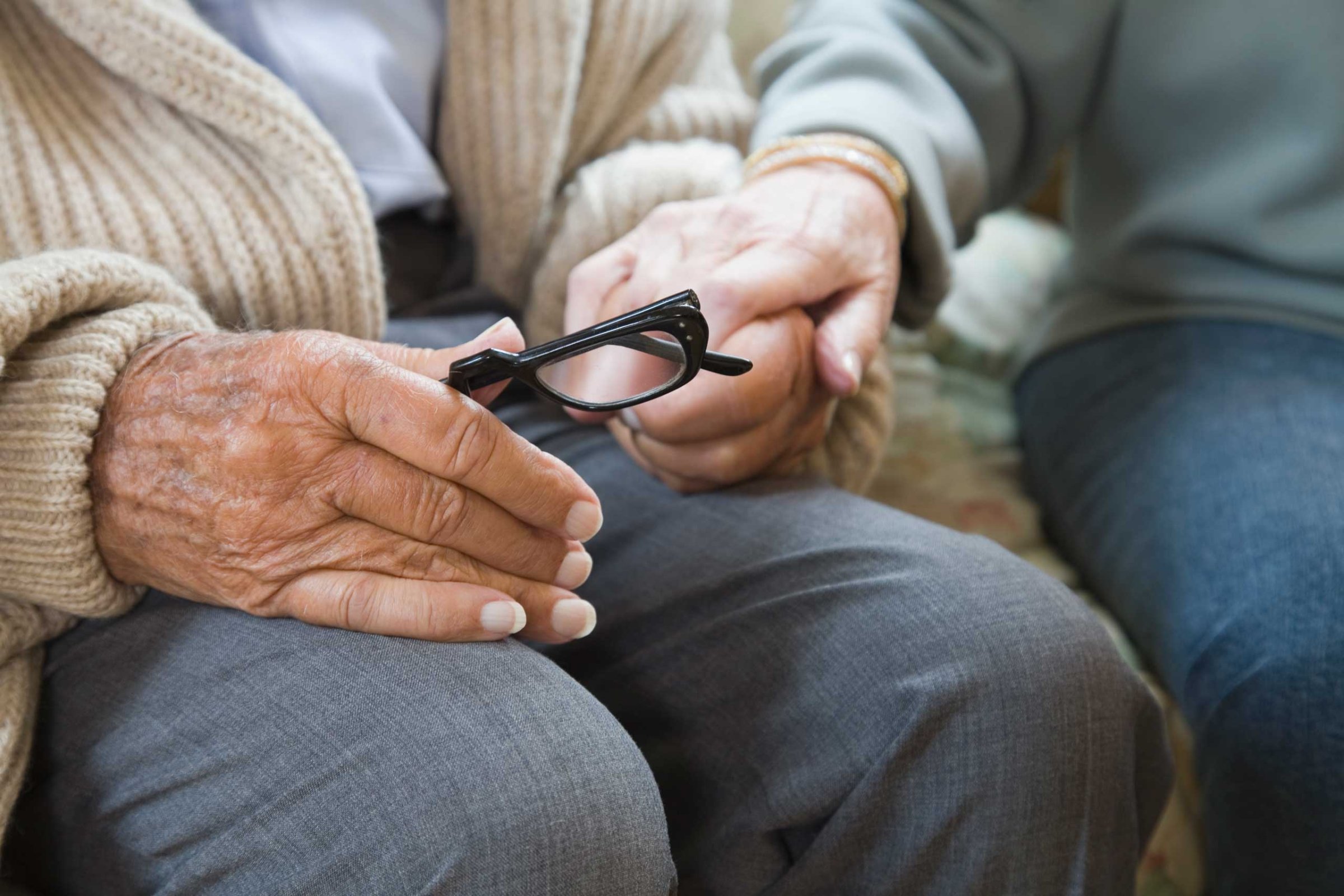
Thirty years ago my mother suffered a stroke that left her without the ability to speak. She can say a word, sometimes two or three, but she has been locked in a prison of self for decades. Yet at moments her powerful character shines through.
A few years ago, after my father died, my brothers and I gathered in Philadelphia for her birthday. We took my mother out to dinner at a local restaurant. After the meal, my brothers and I pulled out our wallets. My mother looked at us with scorn, and loudly said, “No!” We were shocked. Surely she didn’t think that we would let her pay for us? But she seemed emphatic, so dutifully, we put our cards away. My mother looked at us again, and crowed triumphantly, “Dessert!”
We laughed, of course. But the contrast of her force and her limitations is painful. The diminishment of a person is a fearsome and often tragic thing to see. I am at an age when my contemporaries are taking care of and often burying their parents. It is not unusual for death to be preceded by a steady and sometimes painful decline. As a rabbi, I visit old-age homes and hospitals and have to remind myself that this is the fate of everyone who lives long enough. Once the people who are slow, burdened with brittle bones and fading faculties, were children, teenagers, adults, bursting with dreams. They, too, could not imagine being in their current state.
The nuclear family is not kind to the aged. Once most people lived with multiple generations all together in the same house. Institutions have taken the place of families, and the old-age home and the college dorm epitomize our social structure—the old live with the old, and the young live with the young. Except for worship services and sporting events, it’s rare to see intermingling of generations in our society. We pay homage to the wisdom of age, but our culture does not seem to believe it. In a time when technology continually changes the landscape, it’s the younger generation who are likeliest to know how to navigate the world. Teenagers will fix your cellphone and connect your AppleTV. Startups are often created by those who are starting out.
Still, it is our great loss that we disregard the generations who preceded us. Although the elderly represent the past, they are in fact our future. They are where we are headed. Not only do they carry the vividness of personal memory about the years before we were born, but they also carry the immediacy of what it means to be further along on the journey than most of us are now. One day, if we are lucky, we will be old. What will life feel like for me in 20 or 30 or 50 years?
Old age, Charles de Gaulle once said, is a shipwreck. The first sense of that remark is the wreckage of one’s body, once so reliable and now so painful in rest and burdensome in motion. Yet if you think of the storm and gales, emotional, physical, even historical, that so many of the elderly have had to endure, the image of a shipwreck makes a new kind of sense as well. Just as we rush to interview the survivors of any difficult experience, for we know there is an insight born of survival itself, we should look to those who are older not only for the wisdom of living, but also for the wisdom of aging.
Everyone is ultimately headed to the same place. Care for the aged is a mandate of compassion to be sure, but it is also a way of understanding the human condition, including our own. The Psalmist pleaded thousands of years ago, “Do not cast me aside when I am old” (71:9). All of us need to reflect on how well we heed the Psalmist’s cry.
More Must-Reads from TIME
- Donald Trump Is TIME's 2024 Person of the Year
- Why We Chose Trump as Person of the Year
- Is Intermittent Fasting Good or Bad for You?
- The 100 Must-Read Books of 2024
- The 20 Best Christmas TV Episodes
- Column: If Optimism Feels Ridiculous Now, Try Hope
- The Future of Climate Action Is Trade Policy
- Merle Bombardieri Is Helping People Make the Baby Decision
Contact us at letters@time.com